Sartorial word: Ego takes the W-11
Art on apparel is a common trend nowadays.
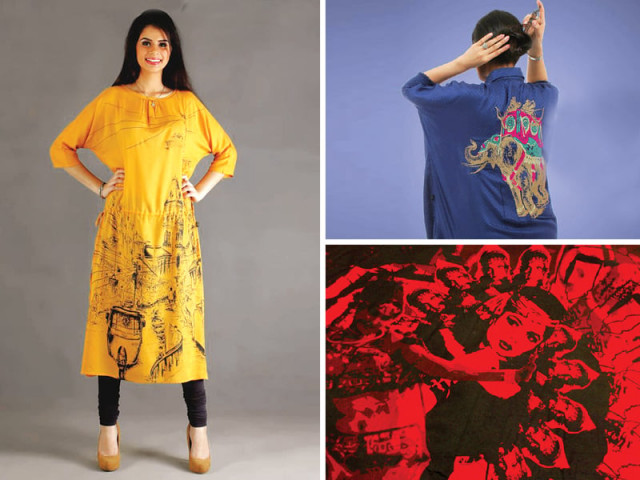
Art on apparel is a common trend nowadays.
Karachi’s W-11 bus route has of late spelt out great business for local high-street brand Ego — only literally speaking, that is. The Duet W-11 line, available at select Ego stores since August last year, focuses on art on fabric, with the resulting garments usually delivering a cultural or social message.
Royal Mogul ‘shah sawar’ elephants, yesteryear’s Lollywood stars and a cityscape that traverses all the way from ‘Bandar Road to Kemari’, among others — this is a creative, artistic collection that pops in a myriad of different colours and catches your eye as you mall-hop for the latest ready-to-wear. It certainly caught mine.
For one, the W-11 collection stands out from the usual Ego designs — the zippered necklines and embroidered gulls that have been part of the brand for the longest time and look somewhat run-of-the-mill now. Although, as Ego’s owner, Adil Moosajee, explains to me, “When you produce 30 designs monthly, there are bound to be some that you repeat. Also, these designs are extremely popular with some of our regular customers.” Point taken — the tried and tested tunics help in boosting profits while a line like W-11 pushes the envelope design-wise.
Also, while art on apparel is a trend that’s been taken up recently by quite a few designers, the Ego Duet W-11 can be credited for bringing it to the high street at extremely affordable prices. The simplest tunics cost about Rs3,500 with prices rising no further than Rs6,500 for the more complicated.
“Some of the tunics are still more expensive than your usual Ego kameez,” says the line’s sole designer Sara Rizvi, who is also a senior designer for all of Ego’s apparel. “This is because of the exclusivity of the art on it and the complicated process that’s involved in translating it from paper onto fabric.”
There’s a lot of detail in some of these tunics — my favourite is ‘Bandar Road to Kemari’, which happened to be the very first line of kurtas to be introduced under the Duet W-11 label. Rising from the shirt’s hemline is a rickshaw winding down Karachi’s lanes, with a tangle of electric wires, a vegetable cart, a woman hanging her shopping basket down her balcony and Empress Market’s tall Clock Tower looming in the background. It’s a hustling-bustling sketch of Karachi that you can easily get lost in.

“It sometimes takes weeks for me to create a single design,” explains Sara. “We pitch different ideas at Ego and I research into them. Then I create a pen sketch which is scanned and put on to the fabric. It’s a technical process because I have to keep in mind the dimensions of the garment on which the sketch will be printed.”
Sara’s latest designs in the series feature sketches of different women — hijab-clad, open-haired, the modern and the traditional — riding motorbikes down the road with ‘It’s about time’ written across the shirt. “I photographed women at their workplaces and juxtaposed them onto motorbikes,” says Sara. “I just wanted to show that while women have now become accepted at workplaces, they’re still not allowed to be who they want to be out on the road.”
It took Sara some time to convince her co-workers that message-oriented art could work well on apparel. “I have been a designer at Ego for the past three-and-a-half years and also own the W-11 art studio, which is a creative enterprise focused on developing commercial and non-commercial art,” she says. “My artistic sensibilities are often reflected in my designs, but Adil wasn’t sure that a separate collaboration with W-11 would work out well. He was convinced when the first collection sold out completely!”
Ego’s other Duet line, created in association with the movie, Chambaili, also reflects Sara’s handiwork. “Most of it has sold out,” says Adil, who now owns 30 Ego outlets across the country with more local and international expansion plans charted out for the year ahead. “We have a very loyal clientele and update our Facebook page constantly in order to assess their preferences.”
This is great but perhaps it is now time for Ego to move on from just maintaining a Facebook page. It’s a brand that Adil and his team have built through sheer hard work. Regular advertising and a presence at fashion weeks could help elevate its popularity and profits all the more — something that a brand like Khaadi has long understood but which Adil, unfortunately, doesn’t agree with.
“I’d much rather let my business grow the way it is now and create more employment opportunities for my workers in the process,” he says rather altruistically.
Placed and televised through a fashion week catwalk, the Duet W-11 line — and some of Ego’s other designs — could easily create a small furore. Instead, the clothes continue to sell out quietly amongst Ego loyalists. It’s one of the anomalies of Pakistani fashion: designers who can’t translate their designs into retail keep gracing the catwalk while promising brands like Ego and Daaman refrain.
On the upside, there’s an Ego store in almost every major mall in the country, for those of us who like affordable avant-garde artwork on apparel.
Maliha Rehman is a fashion and lifestyle journalist with an obsessive, compulsive need to write. Log on for more fashion updates on Twitter @maliharehman.
Published in The Express Tribune, May 27th, 2013.
Like Life & Style on Facebook for the latest in fashion, gossip and entertainment.

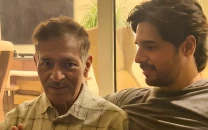
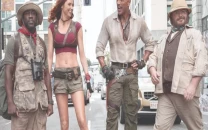
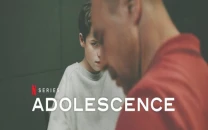
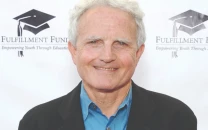

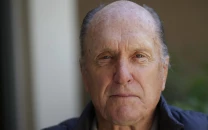












COMMENTS
Comments are moderated and generally will be posted if they are on-topic and not abusive.
For more information, please see our Comments FAQ